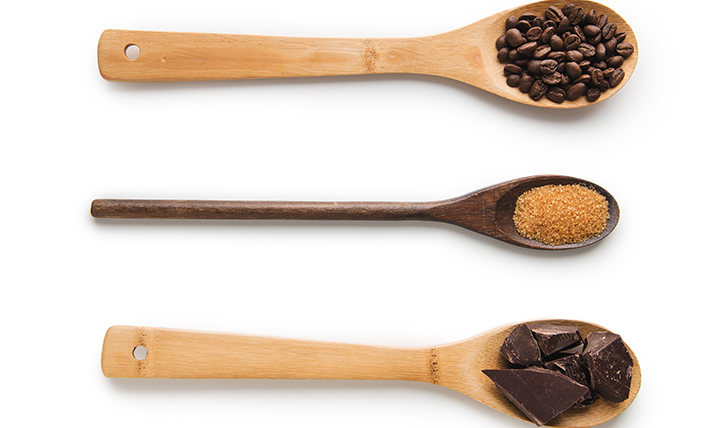Table Talk: Food Ethics

Upon reading Upton Sinclair’s “The Jungle” as a seventh-grader, Ellen Maccarone (now associate professor of philosophy) became vegetarian for a time. It was the beginning of her understanding that what we choose in our everyday lives can reflect our deeply held values.
Maccarone teaches a 400-level philosophy class in which students cook from scratch and take field trips to coffee roasters and food co-ops, all with the intent of encouraging participants to reflect on what they eat.
“It’s about living our values through what we eat – using our values as motivators.”
Our Consumer Values
“The business world believes we vote with the dollar,” says Maccarone. “We need to make consumer choices that tell businesses what our values are and what we are and are not willing to buy.”
She’s a fan of writing letters to companies. On real paper, sent through the mail. But there are other ways to use the power of purchase to share your values:
- Search goodguide.com to learn how your favorite brands measure up, particularly around health and safety concerns.
- Download an app such as Buycott, which allows you to scan a product’s barcode to learn whether your personal values are upheld with that selection.
- Look for the Certified Fair Trade logo.
The Human Factor
It’s easy to forget there are people involved in making the food we buy. Look for products made by companies that value human dignity and embrace fair-trade practices, paying a living wage to employees, Maccarone suggests.“These are made in equatorial regions where people are more likely to be exploited,” says Maccarone, and because we consume so much of these popular items, buying only fair-trade sends a clear message of our consumer values.
The Big Three

While it’s nearly impossible to ensure that all of our food is fair-trade certified, there are a few purchases we can make that have a big impact: Coffee, sugar and chocolate.
Animal Welfare
Many people want to be thoughtful about what they eat while continuing to consume meat. This can include asking questions about how animals are raised: Are they free-range or caged? Are they grain-fed in factory farm warehouses? Do they endure abysmal conditions? “Visiting local farms is a great way to see for yourself whether eating animals aligns with your personal values,” Maccarone says.
Chime In!
Tell us about your own journey in ethical eating, or share a favorite app for making values-based choices. Email editor@gonzaga.edu.
